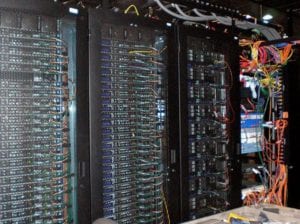If you’ve ever spent time working with medical data systems, you know that they’re not great. They’re slow, they’re complex, and they feel like they came out of another decade. In fact, many did come out of another decade, and they’ve been making miserable the lives of techs and nurses ever since. In short, they suck. There are a few reasons for this, though, which can help you understand why the systems are in such a poor state.
Lowest Bidder Problems
Let us begin with a simple truth – these systems frequently aren’t top of the line. In most cases, the lowest bidder builds medical information technology. It’s one of the few places in which a hospital or practice can feel comfortable saving money, so it never pursues the top of the line. Instead, you’ll always be stuck with the discount version of a much better program. If you’re lucky, you’ll get something with support. If not, you’ll get a custom program that was built cheaply and must be worked around to function.
Old Data, Big Problems
Medical data persists for a very long time. The good news is that many hospitals were quick to start digitizing data. The bad news is that all of that data has to stick around. Unfortunately, that means that expert IT professionals must waste their time maintaining these ancient databases. According to Harmony, legacy data systems are difficult to migrate, so you’ll either be stuck with the original system or with an unwieldy half-solution. Everyone knows that this is not a very good fix, but everyone also knows that it would cost too much money and require too much time for anyone to actually fix the problem.
Not Patient-Facing
Perhaps the major reason that medical data systems remain so awful is that they aren’t patient-facing. While everything else in a medical practice or hospital needs to convince patients that they are in good hands, the IT system is only used by the employees. If the assumption remains that the patient’s experience is paramount, something will eventually have to give. Given budgetary restraints and the fact that most medical personnel are adept at working around the problems of the systems, there seems no chance that most medical systems will be updated.
In short, medical data systems suck because they’re too expensive and too difficult to change. Overhauling the system would take money away from patient care, even if only briefly. It might be short-term thinking to keep the data systems as they are, but the truth is that they will continue to suck as long as they continue to function.



















